‘Thief! Thief!’: Living With The Scars Of Nigeria’s Jungle Justice Rage
Despite laws prohibiting the practice, many Nigerians have been summarily executed by mobs after being accused of a crime. What happens after their death?
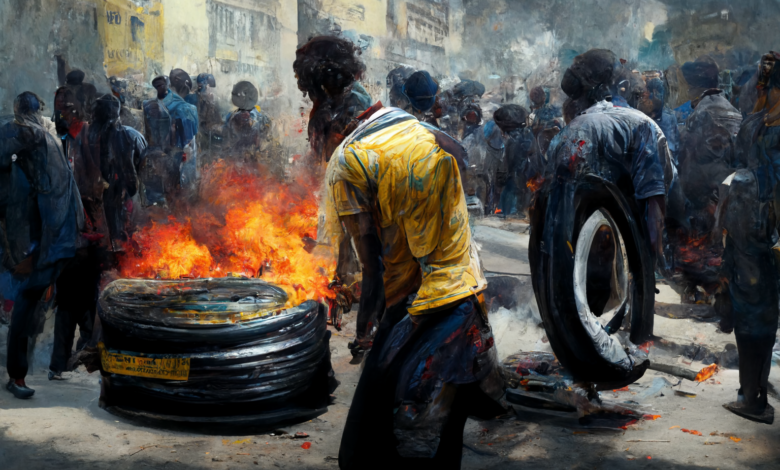
Frank Afanvi, 38, was a Nigerian-Togolese who lived all his life in Nigeria’s southwestern Lagos State. He taught French at a school in the Ayobo-Ipaja area. Things, however, took a different turn for him in 2020 after he lost his job to the COVID-19 pandemic.
To feed his wife and four children, Frank took a temporary night security guard job at Abiola Farm Estate in the same area. After returning from work in the early hours of Sunday, Nov. 29, 2020, he proceeded to Christ is Able Apostolic Mission Church, where he volunteered as a sound engineer to arrange musical instruments. Soon, he got a call asking him to come to the estate for his first salary. Frank excitedly informed his wife and promised to return with some money.
Accused of robbery
“Frank would have stayed back in the church if he knew he would not return alive,” said Peter John, the deceased’s cousin who was briefed about his exit from the church. Although he was supposed to go for evangelism with other young congregants, they went ahead when they did not see him return in time and his phone was switched off.
“We were going to make publicity for the event the church was having when we saw him brutalised on a motorcycle. We discovered that he had been beaten to coma by members of the Oodua People’s Congress (OPC) over an allegation that he was an accomplice in a car battery theft,” John recalled.
The OPC is a Yoruba nationalist and vigilante group dominant in the six states in Southwest Nigeria and Kwara in the North-central region. Especially in the early 2000s, the group was notorious for human rights abuses and engaging in mob action in the name of fighting insecurity.
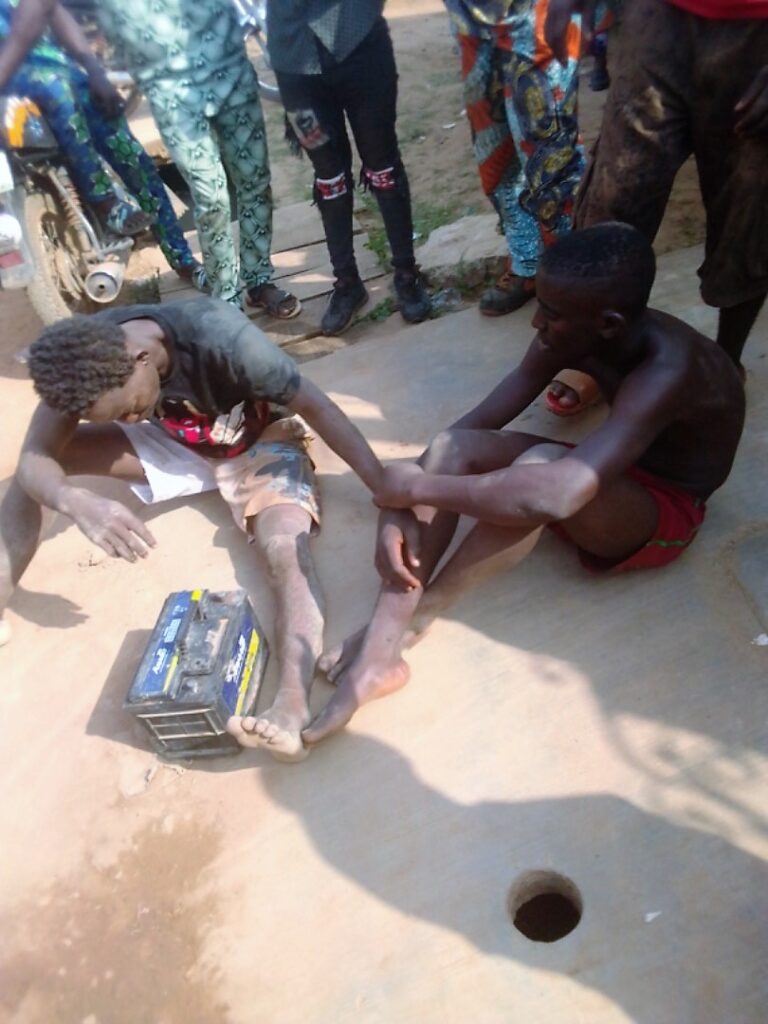
On getting to the OPC’s base, Frank was subjected to another round of torture as community members took his pictures. John told HumAngle that after hours of pleading with the leadership of the vigilante group that the matter should be handed over to the police for investigations, they were asked to pay ₦150,000 ($350) to bail the victim.
“I sent someone to call the police, but it was raining, making it difficult to proceed to the station,” John added. “Apart from the money the OPC asked us to bring, they also demanded three cartons of beer and two cartons of dry gin. I had to call my pastor, who then asked us to return to the church to raise the money so he could be released and treated in the hospital.”
When John returned to the OPC base that night, he could not find his cousin. Frank’s wife and children became more worried. They proceeded to the police station to lodge a formal complaint.
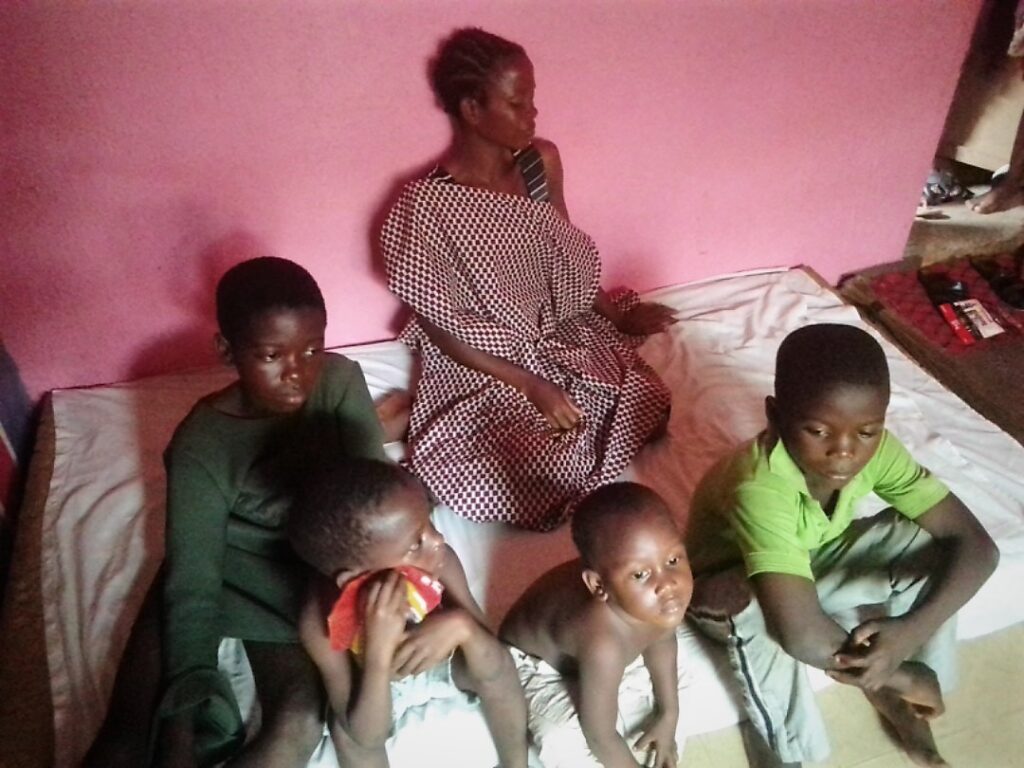
How did he die?
The police at Ayobo later called the victim’s family on Monday, Nov. 30, 2020, to tell them his lifeless body was brought to their station at midnight. According to their account, some OPC members brought him in a tricycle, claiming that they caught a thief and wanted to hand him over for the law to take its course.
When a police officer reportedly flashed his torchlight into the tricycle, he discovered that Frank had already died before he was brought to the station. So, the OPC members were arrested.
“His wife and children cried profusely when they heard about his death. He died because he wanted to feed his family members. It was the worst news for us because Frank was a good man. I never caught him stealing before. It was sad they didn’t give him a fair hearing before killing him,” John said.
The police would later arrest nine people, including the leaders of the OPC, for interrogation. While they were transferred to the State Criminal Investigation and Intelligence Department, Panti, Frank’s body was taken to Lagos Mainland Hospital.
On Dec. 10, 2020, the police charged two suspects, Ogunbayo Waliu and Mukaila Salami, who were said to be OPC leaders, with murder at the Yaba Magistrate’s Court. They were subsequently remanded in Panti due to the COVID-19 pandemic and prison congestion till Jan. 12, 2021, pending legal advice from the Directorate of Public Prosecutions (DPP). The autopsy report seen by HumAngle established that the deceased’s death was primarily caused by multiple injuries sustained during torture.
“To our surprise, the police released the suspects. We tried to inform the police about this, but they paid no attention to us until we got the DPP advice,” John alleged. Following the public prosecutors’ advice, the suspects were arraigned last January before the Lagos State High Court in Ikeja and asked to be remanded at Ikoyi prison.
The next court date is Oct. 12, but even if justice is served, Frank will not be alive to witness it.

The ugly aftermath
One development after Frank’s death remains a puzzling concern for the family.
“We discovered the disappearance of his right wrist when we got to the mortuary to check his body last year,” said John. “We wrote to the authorities about this but have yet to get a response. Meanwhile, the police showed us pictures of how his body was deposited completely at the mortuary.”
Frank’s father, Chief Afanvi, was sick when the incident happened, so he wasn’t briefed until months later. Upon hearing how his son was tortured to death, he collapsed on his motorcycle.
“We hid the story from him at the early stage of the incident. He was briefed when considered strong enough, but it ended more horribly for the family. The people in the village sat him down and showed him the video of the torture. He got up, climbed his motorcycle, but fell and died immediately.”
Frank’s wife and children have returned to Togo because his relatives could no longer care for them in Lagos.
‘Near-death’ experience
Olayemi Wasiu, 35, would have been killed if the first attempt to set him ablaze was successful. Or if law enforcement had not gotten to the scene on time.
He had already been beaten to a stupor. He also had been necklaced with a tyre and had petrol splashed on him. When the second lit matchstick was about to be thrown, some police officers arrived, shooting into the air to disperse the mob.
That was how his life was spared on Nov. 4, 2015. He is, however, left with dental injuries yet to heal seven years after the incident.
Wasiu, who was a personal assistant to a director of the Central Bank of Nigeria (CBN), had gone to Brown Street in Oshodi, Lagos, with his boss’s elder sister. They parked their Siana vehicle by the market’s roadside, leaving the driver behind.
“After hours of shopping, we saw a car that we thought was ours, but there was no driver inside, so we became perplexed. We initially thought of leaving the car there with the hope that the driver would bring it home since we could not find him. But we had an unpleasant experience months earlier when one of her vehicles broke down, and before we could come the next day with the mechanic, it had been vandalised.”
Because Wasiu did not want a repeat, he went home for an extra key. When he returned, he tried to open the vehicle but failed. Then he opted for a car towing service.
“I did not know that the man who owns the vehicle was somewhere looking at all the drama we were performing. Immediately we tried to open the car and tow it home, he started shouting ‘ole!’ (thieves!) Before I knew it, people started assaulting us.”
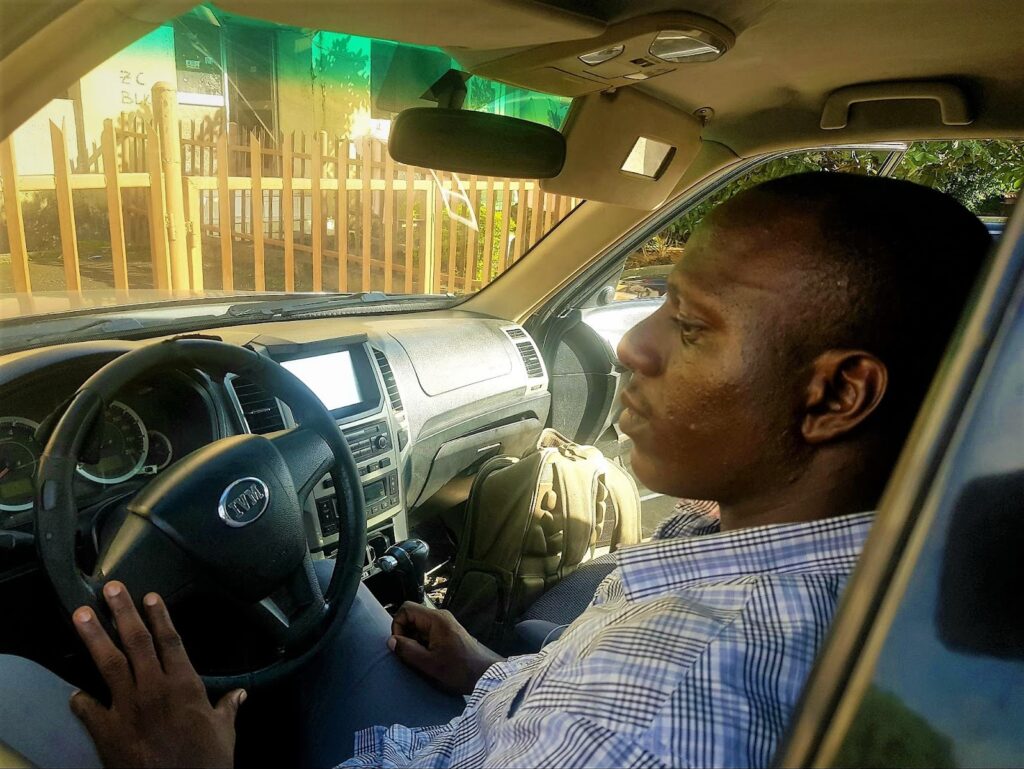
At first, Wasiu confronted them, explaining that he had no reason to steal but was shocked when the man who accused him opened the vehicle with his own key. “It was at that point I gave up and knew that no explanation was going to save the towing man and me from being lynched.”
The driver of the towing vehicle passed out and spent three months in the hospital before fully recovering.
A slim chance of survival
“At that point, I accepted the day as my last day on earth even though I was still denying the accusation with the last breath in me,” narrated Wasiu.
“One of those beating me even claimed I stole his motorcycle. After putting a tyre and petrol on my neck, a man with a matchbox made the first attempt, but the fire quenched when he threw it at me. As he was about to repeat that, I heard a gunshot from the police, apparently to disperse the mob, and that was how God saved me from being killed.”
Wasiu was subsequently taken to police custody, where he was again tortured by officers asking him to confess and mention other criminals in the car theft business with him. He took them to his boss’s house.
“When the police got to our house, they called for reinforcements after seeing about five cars in the compound. They called their office to say we were in possession of multiple stolen vehicles. It was when we were trying to address the latest allegations that our driver brought our vehicle,” he said.
“At that point, everyone could see that it was a case of mistaken identity. The only thing that differentiated the cars was the number plates. In fact, the two were even registered in the same state and local government area. It was then that we were able to convince them that the intention was not to steal.”

Why people engage in jungle justice
Mukaila Azeez, a youth leader at Oshodi underbridge, believes those who engage in the act are occasionally criminals themselves or leaders of criminal gangs.
“They are sometimes the ring leaders of those caught. I have witnessed a series of incidents and the major people who carry out the act are those who felt that if arrested, the suspected thief would mention their names,” he explained.
“I have witnessed many mob attacks. The most painful event was in 1998 around Arowojobe – the midpoint between Ladipo and Oshodi express. A notorious pickpocket, Ayinde Sufyan, was beaten to death by his leaders when he was caught. He was burnt to death and nothing happened.”
Others who have witnessed such events told our reporter they do not believe in Nigeria’s judicial system, consisting of the police, courts, and the Nigeria Prison Service, now known as the Correctional Service.
“Like many citizens who have had experience with the justice system, I have seen police connive with criminals and set them free. Notorious criminals walk freely on the streets; this means some Nigerians feel fulfilled to go against the dying judicial system,” said Rasaq Alimi, a conductor in Oshodi, Lagos.
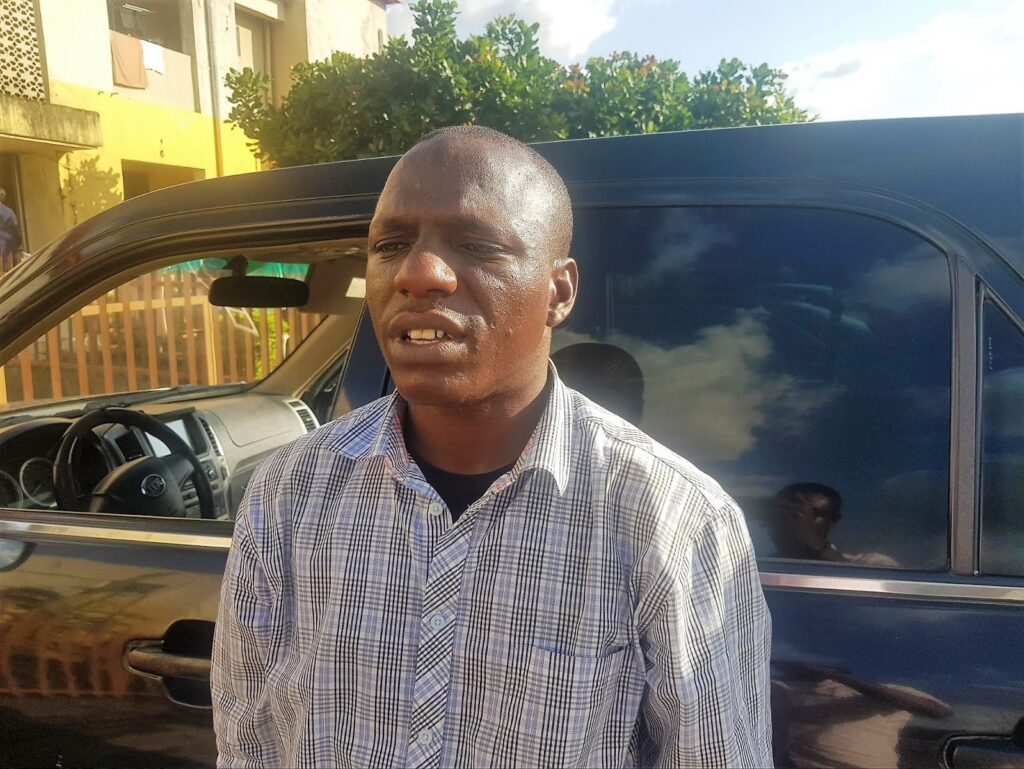
Jungle justice violates Nigeria’s constitution, which guarantees the rights to life, dignity of the human person, personal liberty, and fair hearing. For partaking in mob violence, perpetrators risk being charged with assault or murder.
In spite of these provisions, mob attacks go unchecked. Speaking on the trend, Segun Alayo, a lawyer, said authorities must ensure that offenders are punished when caught.
He called for the reform of the judicial system to ensure justice and speedy trial of criminal cases in a transparent manner. “If not addressed properly, jungle justice will snowball into anarchy and we won’t be able to stop it again,” the lawyer said.
Though Wasiu survived the mob attack, it ended his first marriage. His in-laws, who saw videos of the mob action, did not believe his story when he explained it to them. So, they sabotaged the marriage.
“My ex-wife did not believe I was a victim of circumstances and her relatives ensured that the marriage did not work.”
Support Our Journalism
There are millions of ordinary people affected by conflict in Africa whose stories are missing in the mainstream media. HumAngle is determined to tell those challenging and under-reported stories, hoping that the people impacted by these conflicts will find the safety and security they deserve.
To ensure that we continue to provide public service coverage, we have a small favour to ask you. We want you to be part of our journalistic endeavour by contributing a token to us.
Your donation will further promote a robust, free, and independent media.
Donate HereStay Closer To The Stories That Matter




